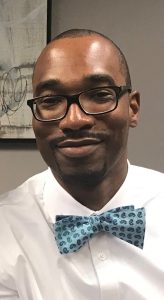By Marques Bradshaw, MD
This year, the theme of Black History Month is health and wellness, which is fitting considering the impact of the ongoing COVID pandemic. Seeing so many African American residents and attendings on social media this month doing remarkable things in the community presents itself as a double-edged sword. I am invigorated by their efforts, but I am also reminded of their struggles in residency programs that are centered on an inequitable sense of belonging, bias, and discrimination.

Unfortunately, many of our stories are the same regardless of what institution we were “privileged” to attend for medical school, residency, fellowship, or work. Navigating the land mine that is academic medicine results in many leaving the field or creates a sense of disenfranchisement that propagates the status quo. Those who remain are often left with a sense of isolation or are overly burdened with fixing the system that they had no part in creating. Yet they shine, combining medical expertise with humble servitude to those coming behind them, topped off with meaningful interactions with the communities we are all fortunate to serve.
Nowadays, Diversity, Equity, and Inclusion (DEI) is in vogue. No program would dare say that efforts in this arena are not important. Yet in many instances, statements and policies are only surface level in depth. While some programs have increased the numbers of underrepresented minority students in radiology, the overall gap remains grossly unchanged. Moreover, given the surface-level attention to DEI issues, we run the risk of placing trainees in toxic work environments, setting them up for failure and undue taxation on their mental health. I am reminded of the persistent lack of an infrastructure to make systemic changes in the numbers of underrepresented people in radiology. While there are multiple groups attempting to effect change, there remains a gap in access to appropriate mentorship, research, exposure, and education. Furthermore, each group is left reinventing the wheel as there remains insufficient programming on a national level to serve as the driving force of change on local levels.
Perhaps our problem is that we have been pacified by the incremental increases in resident diversity and lost sight of the lack of African Americans (and other groups traditionally excluded in medicine) in senior leadership positions both locally in radiology residency programs and nationally in our organizing societies (be it on their leadership and governance teams or boards of trustees). This represents a glass ceiling of tolerance without true acceptance, inclusion, and intentionality. DEI is not a hashtag or momentary allyship, only to be put into the background as the real day-to-day struggles become burdensome. It is more than garnish for decoration of departmental/institutional/societal photo ops or the occasional mention on websites. DEI requires your voice to institute real change. We know in many circumstances the words of the majority can impact change in situations where the voices of those traditionally excluded in medicine are ignored. My hope is that people will understand that diversifying medicine (and radiology in particular) is everyone’s job; it is a journey, not a destination, and we have only just begun.
Dr. Bradshaw is a Nuclear Radiologist at the Nashville Veterans Affairs Hospital and Associate Professor of Radiology at Vanderbilt University Medical Center. He graduated from Morehouse College and earned his medical degree from Duke University and his MSCR from the Medical University of South Carolina. Dr. Bradshaw completed residency in nuclear medicine at Vanderbilt and residency in diagnostic radiology at the Medical University of South Carolina. At MUSC, he served as Assistant Dean for Resident Inclusion and the Nuclear Medicine Residency Program Director. After transitioning back to Vanderbilt, he became the Vice Chair, Diversity Affairs in the Department of Radiology and Radiological Sciences. His passion is centered on resident, student, and technologist education, and mentoring the next generation of learners.
Dr. Bradshaw was invited to share his opinions on the subject using this forum. Edits by ABR staff were made for style or clarity.


